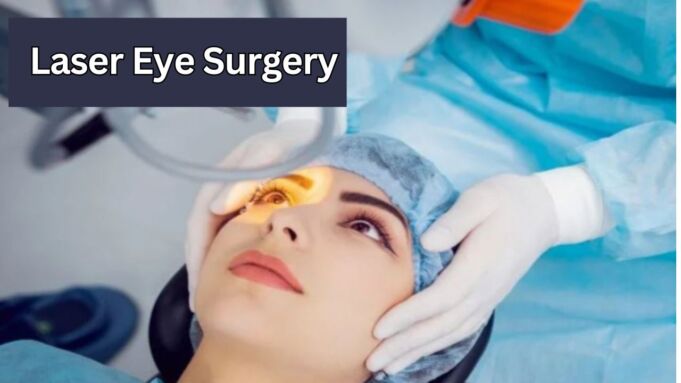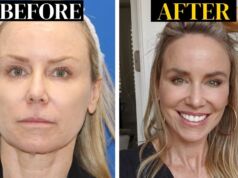One of the most frequently asked questions regarding laser eye surgery is how long it takes to recover. If you have this surgery, you will start experiencing improved vision within one or two days. Complete recovery is gradual, and full recovery is dependent on the age of the patient, the intensity of the surgery, the reason for the surgery, and post-surgery practices.
Laser Eye Surgery Recovery Process
Recovery from laser eye surgery is gradual; it typically takes two to three months for your eyes to heal completely. Your doctor may also recommend follow-up appointments during the first six months after surgery.
Here is the extent of recovery within different periods:
- Immediately after the laser surgery procedure is completed, you may experience discomfort and irritation. Your eyes may feel grainy and watery for several hours.
- You may have 20/20 vision as early as one week after surgery, but the recovery rate for each patient is different.
- In the first month, your eyes will likely be in better condition and you can return to your daily activities. Your vision may fluctuate and your eyes may still feel grainy within this period.
- Two to six months later, your eyes can see clearly, but you may still regularly experience starbursts, dry eyes, glare, and halos. These symptoms are a normal part of post-laser surgery and should decrease over time.
- Six months and beyond, your vision should be stable, and there is no need to wear contact lenses or glasses. Your doctor’s appointments will likely be less frequent, and you can comfortably engage in normal activities.
Factors That Speed up Laser Surgery Recovery
How quickly you recover from laser eye surgery depends on your post-surgery activities. You can speed up your recovery by avoiding any activity that can affect your eyes. Observe the following to reduce the length of time taken to recover from your eye surgery:
Do Not Drive Immediately After Surgery
Driving requires you to focus, which can be tiring after the procedure. Surgeons typically recommend finding a driver to take you home after surgery. Getting a driver allows your eyes to rest after the procedure.
Avoid Irritants
Irritants may reduce your body’s ability to heal naturally. Limit your exposure to irritants such as chlorine and dust as they can impact your recovery. Avoid lotions, makeup, and moisturizers that can get into your eyes. When you are showering or bathing, be cautious with soap or shampoo as they can also irritate your eyes.
Avoid Touching Your Eyes
Touching your eyes may transfer germs from your hands to the eyes, which can cause infections. Although you may feel some eye discomfort before fully recovering, avoid dabbing or rubbing your eyes. This can cause contamination.
Wear Sunglasses
Your eyes are sensitive after laser surgery, requiring you to use eye protection. Wearing sunglasses protects your eyes from the sun and the blue light from electronic devices. This helps to prevent eye dryness and irritation, reducing your recovery time.
Do Not Use Gadgets Immediately After Surgery
Avoid using digital devices like computers, televisions, and smartphones immediately after the surgery. These devices can strain your eyes and cause uncomfortable dryness.
Attend All Follow-up Appointments
After laser surgery, you will need routine eye checkups to maintain your eyes’ health. Attend all your after-care treatments to deal with side effects such as blurriness as they occur. Your doctor may conduct tests to determine your recovery process.
Take Time To Rest
Resting is a large part of how your body recovers from surgery. Taking rest and having enough sleep helps your eyes relax and recover fast. If your eyes feel tired, try to take a break to close your eyes and let them rest.
Get Quality Laser Eye Surgery
Laser eye surgery can simplify your daily routine and give you increased independence. You will no longer have to rely on glasses or contacts to see clearly.
Recovery from laser eye surgery can be a smooth process if you follow aftercare instructions. With a professional surgeon, follow-up appointments, and frequent checkups, your eyes can recover quickly. This helps minimize post-surgery complications, allowing you to enjoy your new 20/20 vision.
If you experience any unexpected symptoms or have any questions about the procedure, contact your doctor. They will be able to help you throughout the recovery process.










![What Does Aviates Stand for in Aviation? [The Art of Flying] Aviates](https://tourinplanet.com/wp-content/uploads/2024/07/Aviates-100x75.jpg)














![25 Best Peruvian Foods You Must Try In Peru [With Recipes] Peruvian Food](https://tourinplanet.com/wp-content/uploads/2024/07/Peruvian-Food-100x75.jpg)


